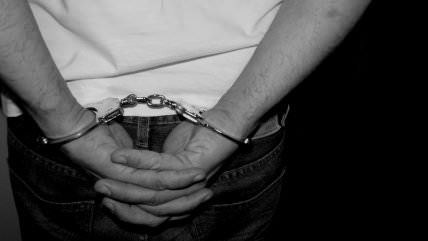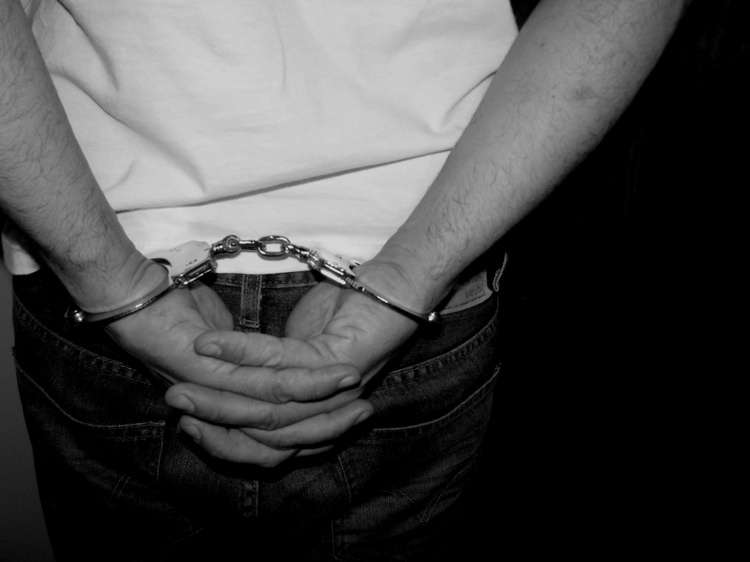Enhanced Penalties for Prostitution Patrons in New York's New Human Trafficking Measure
"Tough on crime" doesn't die, it just takes new forms


On Monday the ?New York Assembly voted to pass an anti-human trafficking bill, part of Gov. Andrew Cuomo's 10-point "women's equality agenda." The bill, which Cuomo has said he will sign, creates two new crimes—"aggravated labor trafficking" and "aggravated patronizing a minor for prostitution"—among other provisions. Sponsor Amy Paulin (D-Scarsdale) said the measure "will give law enforcement the tools it needs to hold pimps and other horrendous perpetrators accountable for exploiting young women and young men."
Under current New York state law, both sex trafficking and labor trafficking are already crimes. So are prostitution, and patronizing a person for prostitution, with enhanced penalties for patronizing someone under age 14. Even if money isn't involved, sexual activity with someone under age 17 is a crime, as is all manners of sexual conduct with children. "Advancing," profiting from, promoting, compelling, or allowing prostitution are also illegal, with enhanced penalties if the sexual subject is under age 16.
It seems New York "pimps" and people who sexually exploit young people can already be held criminally accountable in the state. What, then, does Paulin's legislation actually do? Mostly it enhances sentences for crimes depending on circumstances like involvement of a controlled substance, proximity to a school zone, or the age of the victim. Specifically, the bill would:
- Establish the crime of "aggravated patronizing a minor for prostitution," defined as paying for and actually engaging in sexual activity with anyone under 17-years-old (a class B, D, or E felony depending on the minor's age).
- Establish the crime of "patronizing a person for prostitution in a school zone," defined as paying for sex with anyone under 18-years-old on or adjacent to school property or athletic grounds
- Change the standard for felony advancing, compelling, or profiting from prostitution to include any situation where the victim is under age 18 (previously 16), regardless of whether force or coercion is involved.
- Define felony patronizing a person for prostitution as paying, offering to pay, or talking about paying anyone under 15-years-old (previously 14) for sex. [Offering to pay for sex with someone older was and is still a misdemeanor, as is "wander(ing) about in a public place" in a manner that implies you want to buy or sell sex.]
- Make it an affirmative defense to prostitution charges to be a trafficking victim.
- Allow victims to bring civil actions against sex or labor traffickers.
- Extend the interagency task force on human trafficking for four years
A slew of people have praised the legislation. Among them are Corinne Carey, assistant legislative director of the New York Civil Liberties Union, who called it "necessary and common-sense relief." It's certainly not uniformly terrible—I can get behind the civil action section, and making sexual offenses conform to New York's age of sexual consent standard. Though as it stands (currently and under this new legislation), there's a patchwork of different ages which trigger different crimes and penalties, and it's not clear in what instances not knowing the victims age is considered a defense.
Moreover, making it a defense against prostitution charges to be forced into it seems positive on the surface, and certainly trafficking victims shouldn't be getting treated as criminals. But rather than continue to arrest trafficking victims as criminals and put the burden on them to prove that they're not; incentivize anyone arrested for prostitution to claim they're being forced into it; and perpetuate an endless cycle of stings, arrests, charges, captivity, court dates, and state violence against these women—I mean, maybe we could just not arrest and charge people for prostitution to begin with? Trafficking victims could still be rescued without arresting them first.
In account after account where people actually talk to sex workers and sex-trafficking victims (as opposed to simply imputing motives and emotions to them), they say the first thing they want/need is to stop being criminalized. In quote after quote from nonprofits who work on sex-trafficking issues, they stress one thing: that the biggest barrier victims have to leaving is a lack of places to go (a great number of teen trafficking victims tend to be runaways and foster care escapees). Decriminalization and emergency resources for homeless teens and battered women are about infinitely more necessary than more vice cops, longer prison sentences, and more task-force reports. If lawmakers really want to help trafficking victims, not just grandstand about it (or expand the prison state further), they would address these things.


Show Comments (13)